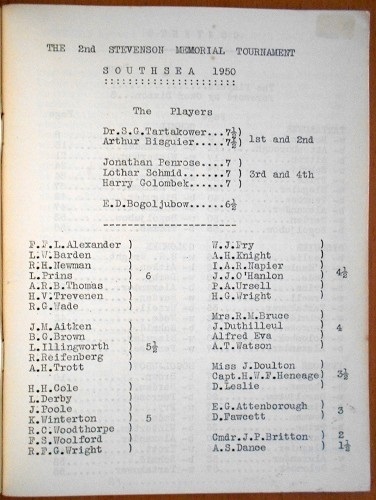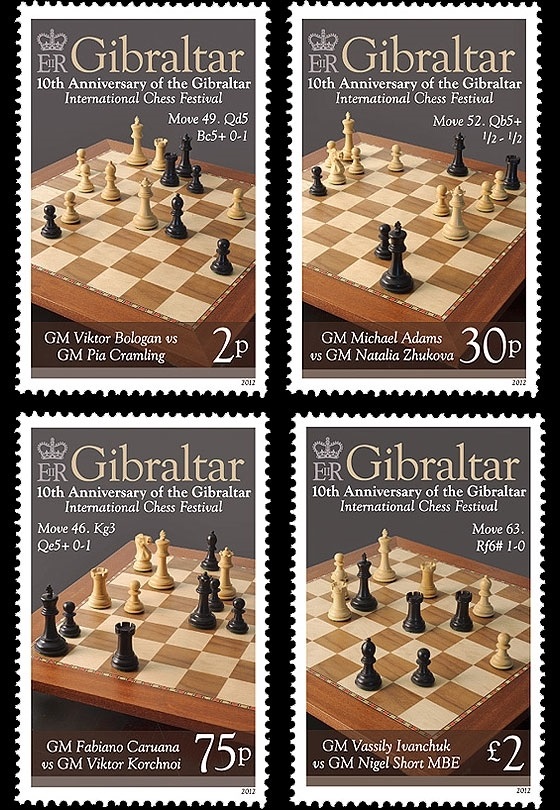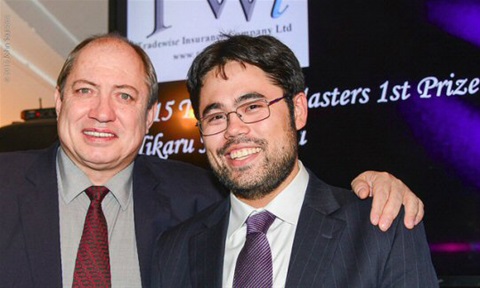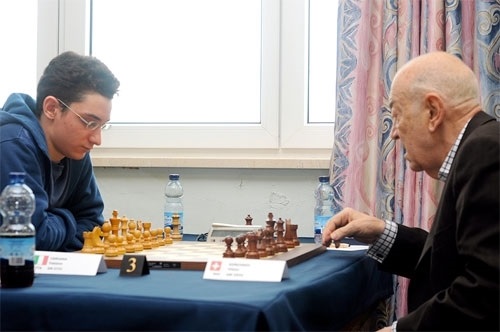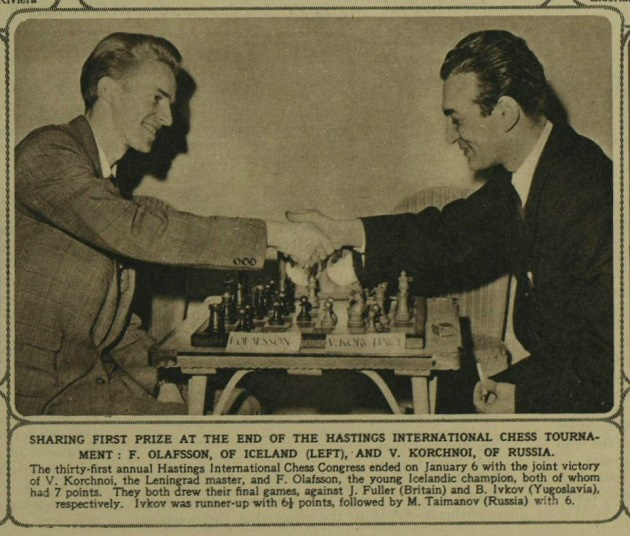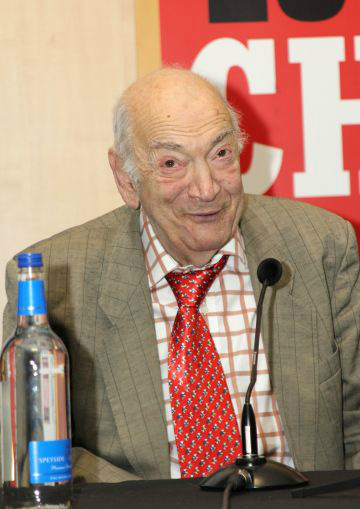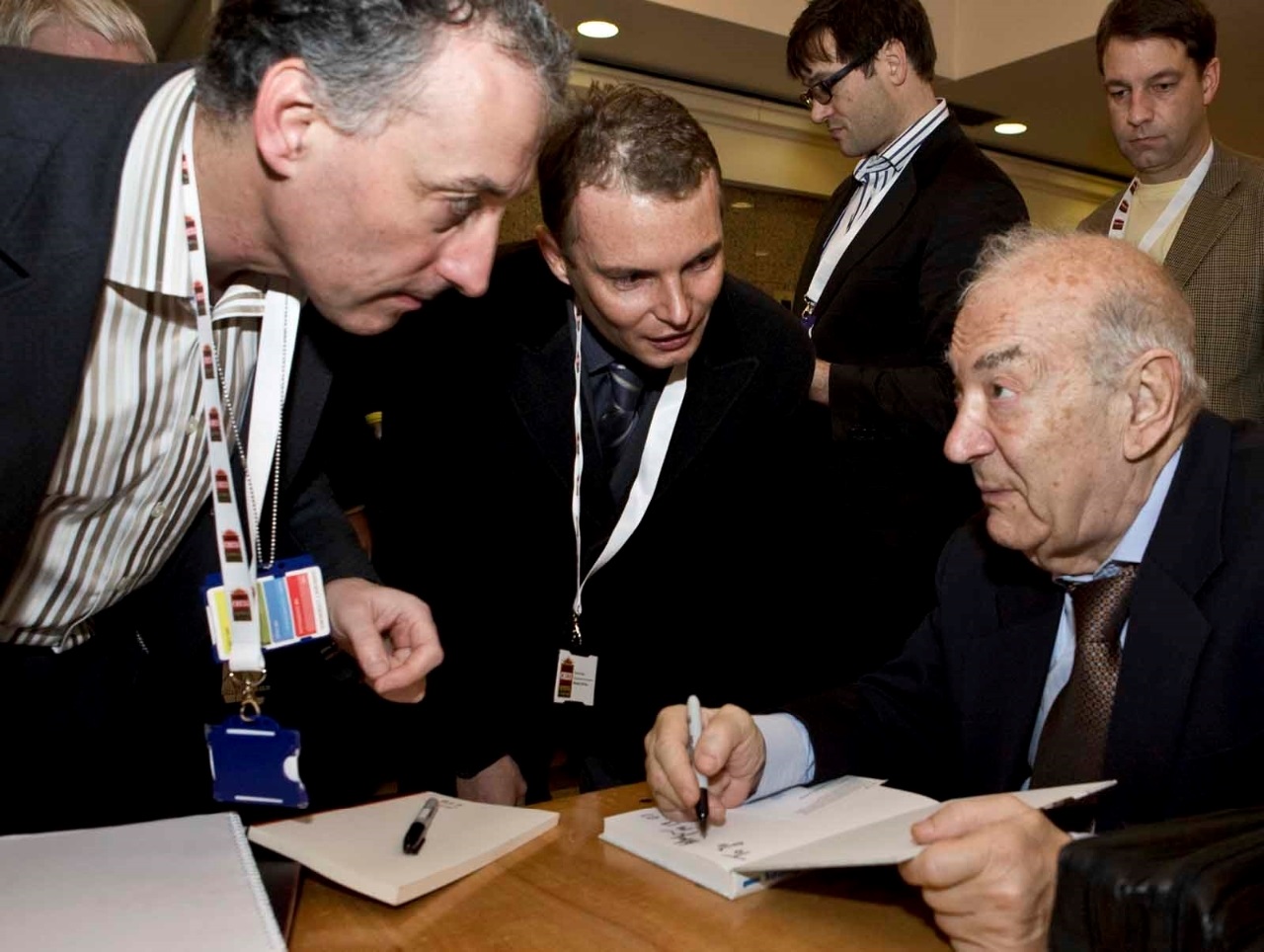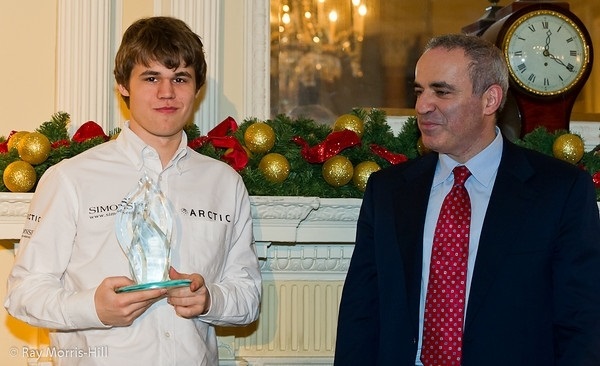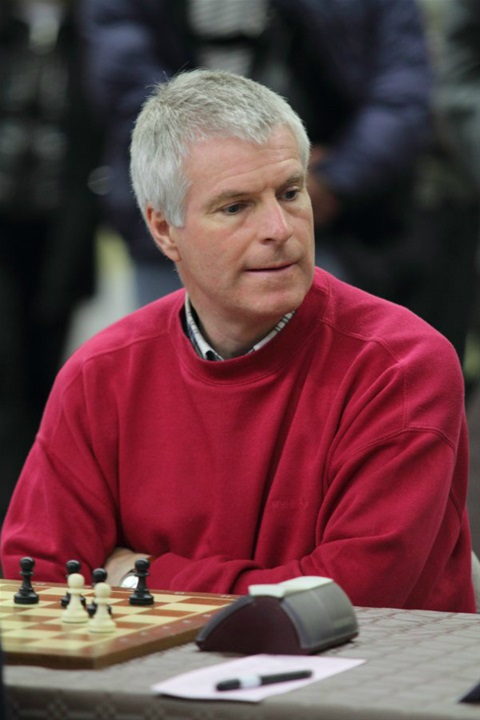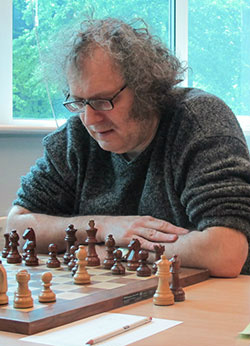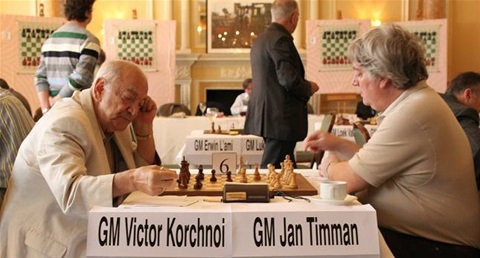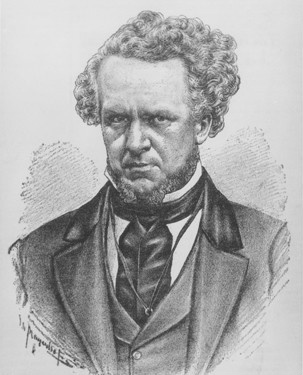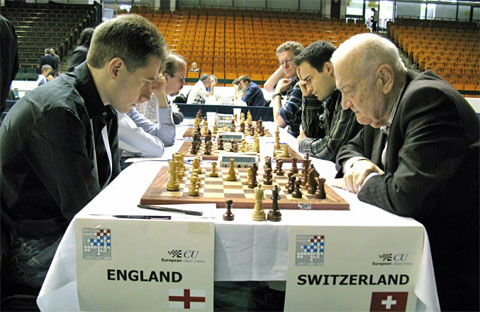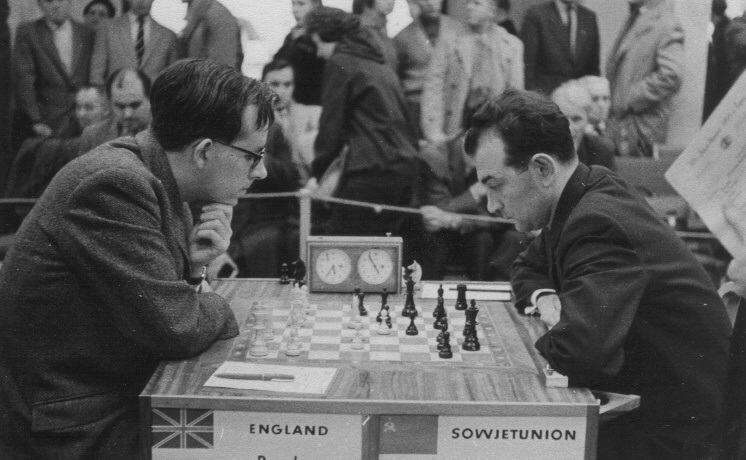England's metropolis has had a vigorous chess life for some 200 years, but being a desert for international chess events from 1950s to the mid-1970s.
The
royal game was popularly played in coffee houses, for example the match between François-André Danican Philidor, a French composer and chess player and Philipp Stamma, a native of Aleppo, Ottoman Syria, later resident of England
and France, took place in 1747 at Slaughter's coffee house in St. Martin's Lane. There was also Purssell's in Cornhill, Salopian's in Charing Cross, Parsloe's (from 1774) in St. James's and from 1828, the famous Simpson's in the Strand (it was first called
Ries').
The very first chess tournament at London was held in 1849 at Ries' Divan (or Simpson's), often called the 'The Divan Tournament'. It was played in a knock-out format, English historian
and strong amateur player Henry Buckle won.
> London hosted the first international chess tournament, with 16 players, on a knock-out basis:
London 1851, organised by Howard Staunton, who also participated in the event, is considered to be the first <international> tournament of modern chess history.
Played as a series of knockout matches, the first player to win two games in the first round or four games in each later round being declared the winner. Adolf Anderssen of Germany won the final.
Therefore the tournament was organised as single elimination
matches, with the eight losers in the first round being dropped from the tournament. Each first-round match was a best-of-three games, draws
not counting. Subsequent rounds were best-of-seven, and losers played consolation matches.
The pairings were made by chance, i.e. there was no seeding system of the type commonly used in tennis tournaments. Three of the stronger players, Kieseritsky, Bird, and Löwenthal all lost in the first round. On
the other hand, two of the replacement players, J. R. Mucklow and E. S. Kennedy, were drawn against each other; hence the winner (Mucklow) gained a share of the prize money.
Anderssen
beat Staunton soundly, 4 to 1, in the third-round semi-final. In the fourth-round final Anderssen beat Wyvill to take first place. Wyvill had had a relatively easy draw in the tournament to finish second. Staunton suffered a bitter defeat to Williams in the
last round consolation match to finish a disappointing fourth.
Background: In May 1851, London staged the Great
Exhibition to showcase British industry and technology, and London's thriving chess community felt obliged to do something similar for chess.
Howard Staunton proposed and then took the lead in organizing the first ever international tournament, to be held at the same time. He thought the Great Exhibition presented a unique opportunity because
the difficulties that obstructed international participation would be greatly reduced, for example it would be easier for contestants to obtain passports and leave from work.
Debriefing:
The lack of time limits on play was criticised. After some experimentation, time controls would become standard in all serious tournaments some years later. The knockout format was seen as a kind of hybrid between match and tournament play, and eliminated
by adopting the round-robin format beginning with the London 1862 tournament
> During the second
British world exhibition (Great London Exposition) in 1862, London hosted the first international round robin, all-play-all tournament. It was also the first to have a time limit – 20 moves in 2 hours. Draws did not count
and drawn games were replayed until a definitive result was arrived. Adolf Anderssen of Germany won again, as pointed out, all-play-all
and time controls were novelties for a big chess tournament. Btw.: This was the first international tournament organized by the British Chess Association (BCF
Congress).
> Wilhelm Steinitz won at London the British Chess Association Grand Tourney in 1872, the second British Chess Federation international chess tournament, held in
a eight player, single-round robin (all-play-all), with draws not counting and replayed!
> The great London tournament in 1883 lasted two months, 256 games were played; draws had to be
repeated up to a third draw was finally accepted. The event was played in a double round-robin.
It is also notable for the first use of the double-sided chess clock, designed by Thomas Wilson, Manchester. Time limit was now 15 moves per hour.
The tournament was won convincingly by Johannes
Zuckertort (22 points out of 26) ahead of Wilhelm Steinitz (with 19 points). Remarkably, Zukertort was already assured of victory with three rounds to go, having scored an astonishing 22/23. He then lost his last three games against relatively
weak players, probably due to exhaustion.
The London 1883 tournament established Johannes Zukertort as rivalling Wilhelm Steinitz to claim to be the best chess player in the world, and led to the World
Chess Championship 1886 match between the two players, the first official World Chess Championship.
In
1884, a new Congress series was launched by the British Chess Association (BCA), later British Chess Federation (BCF), today English Chess Federation (ECF):
> 1885 London (1st Congress): Gunsberg
> 1886 London (2nd Congress): Blackburne and Burn
A play-off (!)
was organised, and won by Blackburne
> 1887 London (3rd Congress): Burn and Gunsberg
Note: The 4th Congress has been played at Bradford in 1888 (Gunsberg won)
>
1889 London (5th Congress): Bird
Note: The 6th Congress has been played at Manchester in 1890 (Tarrasch won)
> 1892 London (7th Congress): Lasker
Note: The famous 8th Congress has been played then
at Hastings in 1895 (Pillsbury won)
Harry Pillsbury, a young American player unknown in Europe, was
the surprise winner with 16½ out of 21 points – ahead of Mikhail Chigorin (16) and reigning World Champion Emanuel Lasker (15½). Following the success of the event, the Hastings chess tournament would become later an annual feature, and
is still ongoing:
Hastings *1920/21 - www.chessdiagonals.ch
> The London 1899 tournament (9th Congress) was without a doubt one of the very strongest tournaments
ever held on British soil. Almost every great master of the day was present including the past and reigning world champions. It proved to be the swan song of the old champion Wilhelm
Steinitz but for Emanuel Lasker it was a glittering success which propelled him way beyond the other grandmasters of the time.
Of the eighteen invited, all top players
of the age, with many being the champion of their country, Tarrasch declined his invitation, citing his medical practice as the higher priority. Charousek wished to attend but an illness at the time (which later proved fatal) prevented him. Amos Burn, who
had agreed to come, left the first day when called away on business. The players gathered in St. Stephen's Hall, found near the Houses of Parliament and Westminster Aquarium, where their play was dwarfed each day by the towering statues of historic statesmen.
A time limit of fifteen moves in one hour was in effect.
The fifteen participants played double rounds, except for Richard Teichmann who unfortunately had to withdraw after round four due to an eye infection, His residual games in the
first cycle were declared as lost. He returned to play and won soon afterwards the City of London tournament in 1900.Throughout his chess career, Teichmann was handicapped by chronic eye trouble.
Emanuel Lasker finished unbelievable
4.5 points ahead of the group that finished tied for second (Janowski, Maroczy, Pillsbury), and this remains one of the most dominant performances ever in a chess tournament! London 1899 turned out to be an unfortunate landmark for Wilhelm Steinitz,
who finished a tournament for the first time in his life without a prize (normally for the first five players). It was also to be his last for he died in poverty a year later.
There was a second section in that tournament (later often called "B-group"),
which was won by Frank Marshall with 8.5 out of 11.
> London, City Club Masters 1900: Richard Teichmann ahaed of 2./3. Mason and Gunsberg (13 players in a mix of leading British masters and prominent amateurs)
> London (15th BCF Congress) 1922: José Raúl Capablanca
The Cuban prodigy was the superstar of chess in 1922 and London was his first serious chess in the 15 months
since he had won the championship title from Emanuel Lasker. Capablanca was the chessplayer whom even non-players could identify. But the tournament signified not only Capa's return to the game, it was also something of a revival of international chess after
four years of war and four more of recovery. The new world champion would ease into first place undefeated ahead of future challenger Alexander Alekhine. The young Dutchman Max Euwe was honing his skills that would eventually take him to the top of the chess
world. And Richard Réti was about to unveil his Opening of the Future 1.Nf3!
London 1922 is important for all these reasons, but it also served as the setting for the creation of the famous <London
Rules> which would govern the way in which prospective challengers to the title would have the right to play the champion.
Photographs of the participants of the London international Chess Congress:
http://www.chessgraphics.net/congress.htm
> London (British Chess Empire Club Masters) 1927: Aaron Nimzowitsch and Savielly
Tartakower
> In 1932, the London Sunday Referee tournament was held. It was won by Alexander Alekhine, scoring 9 out of 11 (+7=4), followed by Flohr with 8, then
Kashdan and Sultan Khan with 7.5.
The Sunday Referee was a Sunday newspaper in the United Kingdom until it merged with the Sunday Chronicle. In the 1930s, considerable money was invested
in an attempt to compete with the leading Sunday newspapers, and circulation reached 400,000, but in 1939 it was merged with the Sunday Chronicle.
> In 1946, the London Sunday Chronicle tournament was held (also called Victory tournament). Very unusual: The players were divided into two supposedly equally strong groups!! Section
I (A) was won by Herman Steiner, ahead of Bernstein, followed by Tartakower; Section II (B) by Max Euwe, ahead of Christoffel, followed by Denker.
The participation
of 14-year-young Arturo Pomar (born in 1931, died in 2016) attracted public attention, especially when he was pitted against older players. Pomar scored 5.5/11 in his section, and he beat Jacques
Mieses (born in 1865, died in 1954) in a subsidiary Mini-Match, also held at London, with 1½–½. The following picture, which is from London 1946 – but not this tournament, shows him playing against Ossip Bernstein (born in 1882, died in 1962): http://www.chesshistory.com/winter/pics/cn6573_pomarbernstein1.jpg
After the famous Sunday Chronicle Victory Tournament in 1946, London was mostly a desert for big international
chess tournaments up to the mid-1970s!
> Guardian Royal Exchange in London 1973: Jan Timman, then an IM (ahead of 2. Keene, 3./4.
Reshevsky, Hecht, 5.= Stean, Karaklajic, and O'Kelly. British youngsters as Keene, Stean, Webb or Markland on their road to success, ten players). 36 years later, Jan Timman won again an international round robin tournament (see Staunton Memorial
series) at London.
> Evening Standard London
Chess Fortnight in London 1975: Tony Miles, then an IM (ahead of 2./3. Timman, Adorjan, 4. Sax, 5. Nunn. British youngsters as Miles, Nunn, Webb, and Basman battling some of the world's rising stars, ten players)
> Lord John Cup in London 1977: Vlastimil Hort (ahead of 2.-.4. Quinteros, Stean, Mestel, 5. Nunn, ten players, incl. young Torre and veteran Kotov)
Series:
> London, Lloyds Bank, Open 1977-1994
> London, Phillips & Drew Kings, then GLC
Chess Challenge 1980-1986 biannually played
> London, Staunton Memorial 2003-2009
> London Chess Classic, since 2009
Nomenklatura: The English Chess Federation (ECF) is the governing chess organisation in England
and is affiliated to FIDE. The ECF was formed in 2004 and was effectively
a re-constitution of the extant governing body, the British Chess Federation (BCF), an organisation founded in 1904. The BCF had been set up to replace the non-functioning British Chess Association (BCA)
and initially, not only governed chess in England, but also included Wales and Northern Ireland in its region of activities.
Nowadays however, Scotland,
Wales, Ireland and the Channel
Islands are all governed by their own chess federations and English chess administrators agreed in 2004 that it would be appropriate to replace the BCF with the ECF, the change to be effective from the start of the 2005/06 season. (Source: Wikipedia)
Record British (English) National Champion: Jonathan Penrose (10x), above Henry Atkins (9x)
Team events:
> First official Chess Olympiad in London 1927
> Second Match “USSR vs. Rest of the
World” in London 1984
> Friendly match (amongst others):
1976, 24th of January, in London (rapid): Young England vs. Soviet Union 5½-12½
(Stean, Goodman, Mestel — Korchnoi, Taimanov, Bronstein)
http://www.365chess.com/tournaments/ENG-URS_m_1976/24021
Inofficial World Chess title matches:
> McDonnell vs. La Bourdonnais in 1834
Between
June and October 1834, Louis-Charles Mahé de La Bourdonnais, an aristocrat of France and Alexander McDonnell of Ireland played a series of six matches, a total of eighty-five games, at the Westminster Chess Club in London. McDonnell won the second match, while La Bourdonnais won first, third, fourth and fifth. The sixth match was unfinished.
The games were recorded for posterity by the club's elderly founder William Greenwood Walker, who remained by McDonnell's side for almost the entire duration of the match. Play generally began around noon, some of the games taking more than seven
hours to complete. McDonnell knew no French, and La Bourdonnais knew no English. It is said that the only word they exchanged during their historic encounter was "check!”
La Bourdonnais was considered to be the unofficial World
Chess Champion (there was no official title at the time) from 1821 — when he became able to beat his teacher Alexandre Deschapelles — until his death in 1840. The most famous match series, indeed considered as the World Chess Championship,
was the series against Alexander Donnell in 1834.
McDonnell was suffering from Bright's disease, a historical classification of nephritis, which affects the kidneys.
In the summer of 1835 his condition worsened and he died in London on 15 September 1835 before his match with La Bourdonnais could be resumed.
Louis-Charles Mahé de La Bourdonnais died penniless in London in 1840, having been forced to sell all of his possessions, including his clothes,
to satisfy his creditors. George Walker arranged to have him buried just a stone's throw away from his old rival Alexander
McDonnell in London's Kensal Green Cemetery.
Harry Golombek evaluated the games and found them to generally be of low quality. There were some instances of brilliance, but the level of technique, especially in the endgame was low. In one game
McDonnell had an endgame with a rook and two pawns versus a rook and did not know how to win. He lost his rook due to a blunder and lost the game. La Bourdonnais was not as bad as McDonnell in the endgame but he was weak in the opening. The games lacked any
cohesive strategy. There were relatively few draws, but this was partly due to McDonnell's inaccurate defense, which caused him to lose games instead of draw them. (Source: Wikipedia)
> Steinitz vs. Andersson in 1866
Traditionally this match marked the beginning of Steinitz' reign as World Chess Champion, an idea not generally accepted today.
World Chess Championship campaigning:
> Candidates semifinal matches 1983: Kasparov vs. Korchnoi, Smyslov vs. Ribli
> Candidates reserve triangular 1985: Speelman, Gavrikov, Van der Wiel
> Candidates quarterfinal match 1988: Speelman vs. Short
>
Candidates semifinal match 1989: Timman vs. Speelman
> Candidates semifinal match 1989: Karpov vs. Jussupow
> Candidates eighthfinal match (in fact,
7th-final, Karpov got a bye) 1991: Short vs. Speelman
> Candidates
tournament 2013 (Carlsen above Kramnik on tie-break)
World Chess Championship matches:
> FIDE Chess Championship, Rematch 1986 (Kasparov vs. Karpov); the second half of the match was held in Leningrad
> PCA (Times) Championship 1993 (Kasparov and Short
splitting from FIDE and GMA)
> Brain Games World Chess Championship 2000 (Kramnik dethroning Kasparov), later embedded in the "Classical Champions"
> The next World Championship will be played at London: https://london2018.worldchess.com/
The Norwegian World Champion
Magnus Carlsen (28) will make the third defense of his world title this year in London in a best-of-12-games match from 9-28 November 2018 against Fabiano Caruana (26), the Challenger who
won in March 2018 the eight-man Candidates Tournament in Berlin.
For a good overall survey of London chess tournaments, see in French Wikipedia:
https://fr.wikipedia.org/wiki/Tournoi_d%27%C3%A9checs_de_Londres
